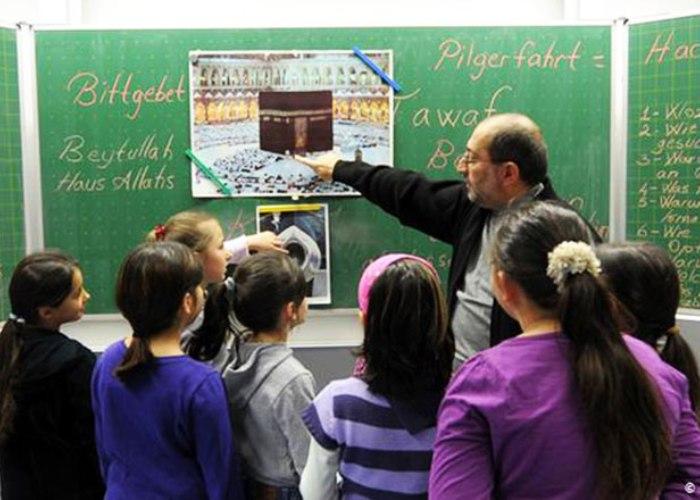
The implementation of religious lessons for middle school students is one of the current topics in modern educational systems. Education researcher Qurban Talibov provides a detailed analysis of the importance of this issue, the role of religion in education, and global experiences in this field.
Religious lessons go beyond merely imparting religious knowledge; they are also aimed at teaching ethical, moral, and social values. During middle school, religious education plays a significant role in shaping students' personalities and broadening their worldviews. Qurban Talibov emphasizes that "religious knowledge helps youth understand their culture, history, and the values of their society."
Moreover, religious lessons can serve as a platform for developing critical thinking and empathy among students. Discussions and debates on religious topics encourage openness to diverse opinions and teach students how to resolve conflicts peacefully.
Globally, the conduct of religious education varies widely across different countries. For instance, in Scandinavian countries, religious education is more focused on ethical and cultural knowledge. In Sweden, religious lessons are aimed at studying various religions and fostering mutual understanding between cultures. This approach promotes religious tolerance and social harmony.
In the United Kingdom, religious education is an integral part of the school curriculum. Here, the goal of religious education is to help students understand ethical values, explore different religions, and gain information about various cultures. Religious lessons contribute to increasing students' social responsibility and assist them in becoming more active members of society.
In the United States, discussions about religious education are also ongoing. While some public schools have religious education programs, the issue is regulated by the principle of separation of church and state. This aims to ensure religious freedom and uphold principles of tolerance.
Qurban Talibov highlights the importance of conducting religious lessons in middle schools in Azerbaijan. These lessons can help young people learn about their cultures, histories, and religious values while also promoting social unity and harmony. "Religious education is not only about imparting belief systems but also about recognizing social responsibility and human rights," he adds.
It is also crucial that religious lessons be conducted in accordance with modern requirements. The transmission of religious knowledge should focus on topics such as empathy, ethical values, and social responsibility. This will help ensure the positive development of students, making them active and responsible members of society.
In summary, the teaching of religious lessons to middle school students plays a vital role in their moral and ethical development. Qurban Talibov emphasizes the importance of incorporating religious knowledge into modern education, drawing on global experiences. This approach can enhance young people's social and cultural understanding, contributing to the healthy development of society. The goal of religious lessons is not only to teach religious beliefs but also to assist youth in cultivating ethical values and respecting diverse cultures.